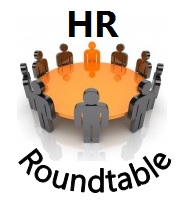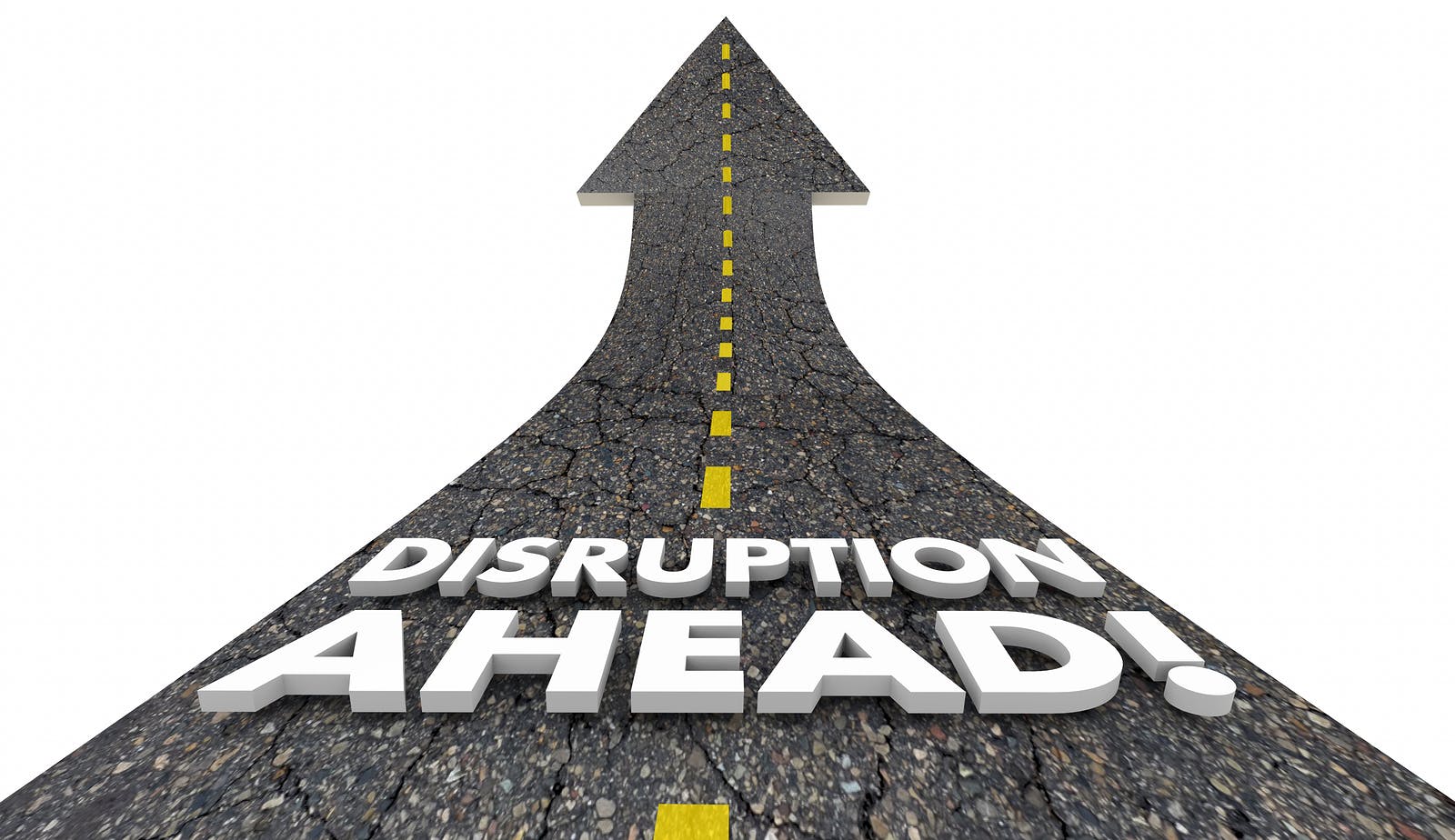In November, (the Cincinnati Roundtable) decided to talk about the newest HR/business catchphrase – Disruption! It’s everywhere you look, and people are strongly encouraging disruption in any manner possible. It’s ironic that we work in organizations that are primarily risk averse and hesitant to change even in the slightest bit, yet we want to be disruptive. It had to be talked about, so the groups started out with these teasers:
- How do you define “organizational disruption”?
- Why is disruption needed today?
The Roundtable regulars were wondering where the 3rd question was that we always have. Steve had to laugh because he only went with two to be “disruptive” and even this minor shift brought confusion and a need to get back to the norm. He refused and everyone carried on with two questions. Here’s all the good feedback they came back with to share with the group as a whole.
How Do You Define “Organizational Disruption”?
The groups struggled with a concrete definition, but they did come up with many factors that drive, or cause, organizational disruption which is a great place to start.
Staffing changes
People tend to think of staffing changes being disruptive in relation to scale; for instance, a layoff or reduction in force. Those types of changes definitely cause disruption because people don’t like the instability and they may have also lost friends in corporate/departmental restructuring. One thing to note though: the change of as few as one person can cause disruption. It depends on who that person was, the role they held, and the reach they had throughout the organization. Any time people join or leave a company, there has to be a readjustment to see how things will or won’t move forward.
Processes
Granted, this is a rather broad stroked answer. Processes are disruptive for many reasons. They may be too cumbersome. They may be misunderstood, but followed anyway. They may be tightly held traditions that evoke the classic “That’s the way we’ve always done things.” They also may be new. New processes automatically provoke anxiety because they have an air of the unknown. This isn’t a good or bad thing. It is a reality that the processes we have in our companies can be disruptive.
Mergers & acquisitions
This is almost a given and a combination of the two prior points. Anytime there’s a M&A worlds get changed in an instant. This can be a positive move that saves one company and makes the whole even better positioned to succeed. Or, it can be the deconstruction of one or more companies. M&A is more and more becoming the norm. People are more likely to purchase than they are to create.
Catastrophic events
There are far too many examples of situations ranging from natural disasters (fires, floods, earthquakes, tornadoes, hurricanes, etc.) to workplace violence these days. You are almost guaranteed to see something like this daily in the news. Catastrophes are one disruptive thread that doesn’t care where you are on the globe or what type of industry you are. Of all the answers shared, this may be the most “true” definition of disruption.
Technology and the pace of it
We have always been in the midst of technology. It isn’t just the current Apple product or Google invention. Any introduction of a new technology in an organization starts with dramatic upheaval at its introduction, along with strong resistance. Then, as it is utilized more and more, it becomes the norm. The challenge with technology isn’t its existence and its usage. It’s the pace of change. Humans can’t keep up. By the time you implement a new operating system with all of the appropriate licenses, two new upgrades have been introduced. It’s our reality and we need to find a way for it not to be so disruptive.
The F’n government!!
(That was just fun to type.) Please take note that this not a political statement. It doesn’t matter which party is in control or who holds office. When new laws and regulations are set into motion, disruption occurs. This is one factor you can’t anticipate or stay ahead of because they are rarely clear. This will always be something that organizations will just have to react to when they occur.
Narrow thinking and stereotypes
This had to be added to the summary. When you look at the business landscape and people are trying to separate groups of people because of their age (millennials) or their beliefs (cultural and religious differences) or their behavior (everything is harassment!), you have disruption. When you have organizations that would rather be reactionary and do everything from a knee-jerk position in response to every push/pull in social media, then you see companies either freeze or make sweeping generalizations. Neither effort is effective. Take the time to make sure that you, your HR efforts and your company as a whole keeps a broad perspective on things.
Why Is Disruption Needed Today?
Innate fear
Organizations love conformity and doing things from a position of being comfortable. It gives everyone a good feeling that things are “okay.” Companies are often lulled to sleep and they don’t shake things up to see what’s next. Innovation becomes a program instead of a way of doing work. We need to fight against this fear and move forward – or we won’t exist.
Active innovation
People are full of ideas. The question is, will your company allow them to express and experiment to see if they’ll work. Innovation doesn’t have to be some massive product launch in order for it to be accepted. Innovation can happen within your role, within your department or across the organization. The key is that innovation should be on-going and not in reaction to being behind your competition.
If you’re not growing, you’re dying
This was such a great answer and a true business fact. It actually works for people as well. If we don’t expand, then we don’t just remain stagnate, we shrink. Keep this phrase in front of you so that disruption becomes natural for you.
Employee development and retention
This isn’t performance management. It isn’t about keeping track of folks and controlling them with reports and looking to the past. Your employees want to grow. They want to contribute and they want to add value. This requires disruption because companies just aren’t doing this well – especially HR! This final point is our new reality. We need to shift now and hope it’s not too late.
Two questions proved to be enough for this Roundtable. The conversations were robust and stretched the boundaries ever so slightly. It’s a good start and hopefully a foundation for you to take some of these points to generate some disruption of your own.
